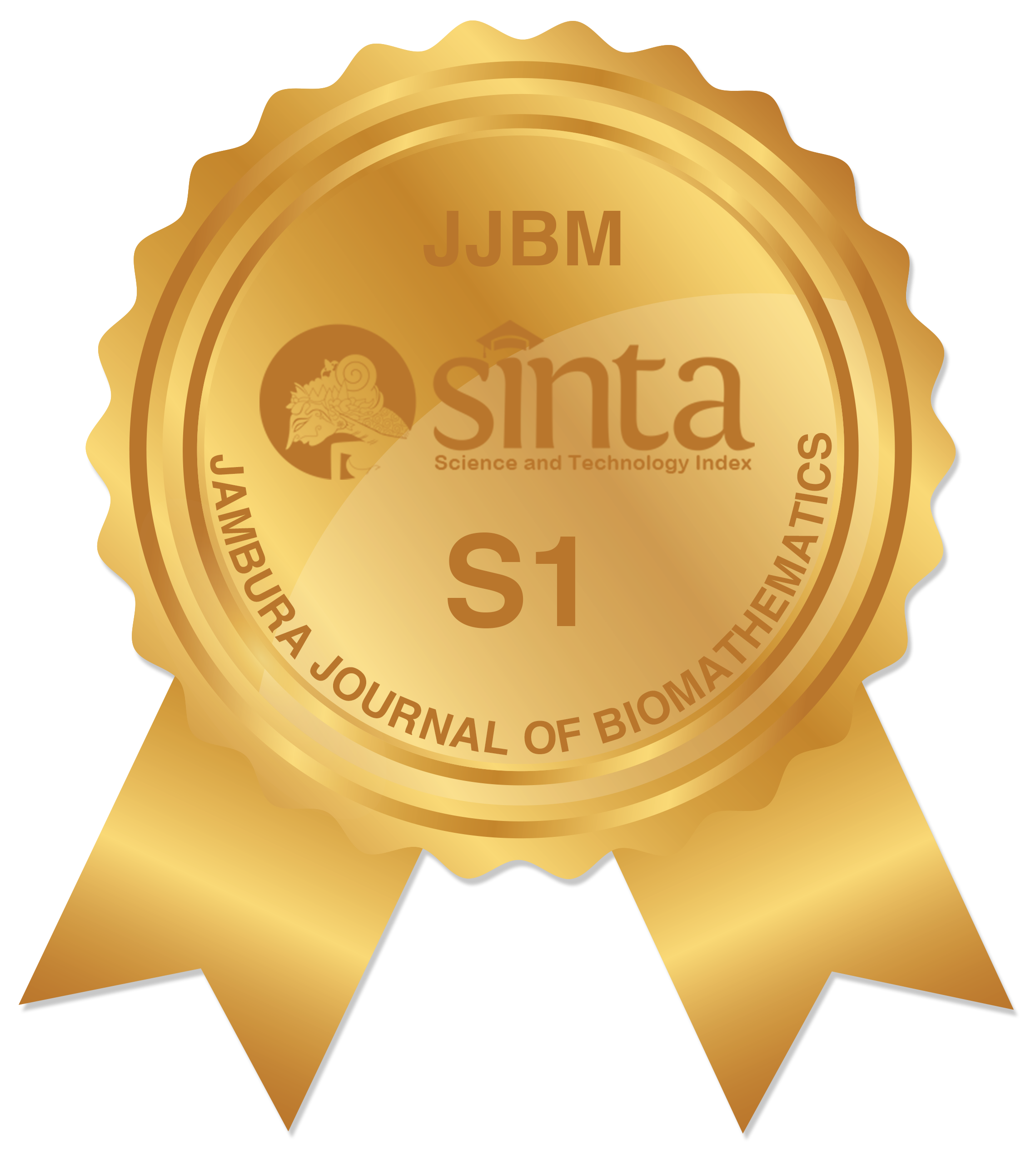A Reinforcement Learning Based Decision-Support System for Mitigate Strategies During COVID-19: A Systematic Review
Abstract
The past threat of the COVID-19 pandemic has challenged policymakers to develop effective decision-support systems. Reinforcement learning (RL), a branch of artificial intelligence, has emerged as a promising approach to designing such systems. This systematic review analyzes 20 selected studies published between 2020 and 2024 that apply RL as a decision-making tool for COVID-19 mitigation, focusing on environment models, algorithms, state representation, action design, reward functions, and challenges. Our findings reveal that Q-learning is the most frequently used algorithm, with most implementations relying on SEIR-based models and real-world COVID-19 epidemiological data. Policy interventions, particularly lockdowns, are commonly modeled as actions, while reward functions are health-oriented, economic, or hybrid, with an increasing trend toward multi-objective designs. Despite these advancements, key limitations persist, including data uncertainty, computational complexity, ethical concerns, and the gap between simulated performance and real-world feasibility. This review further identifies a research opportunity to integrate epidemic model formulations with explicit control inputs into RL frameworks, potentially enhancing learning efficiency and bridging the gap between simulation and practice for future pandemic response systems.
Keywords
Full Text:
PDFReferences
B. Sawicka et al., Chapter 14 - The coronavirus global pandemic and its impacts on society. Elsevier, 2022, pp. 267–311. ISBN:9780323851565. DOI:10.1016/B978-0-323-85156-5.00037-7
C. L. Atzrodt et al., “A guide to covid-19: a global pandemic caused by the novel coronavirus sars-cov-2,” FEBS Journal, vol. 287, no. 17, pp. 3633–3650, 2020. DOI:10.1111/febs.15375
W. H. O. (WHO), “Weekly epidemiological update on covid-19 - 1 february 2022,” URL: https://www.who.int/publications/m/item/weekly-epidemiological-update-on-covid-19—1-february-2022, Accessed on 1 February 2022.
M. Rayungsari, M. Aufin, and N. Imamah, “Parameters estimation of generalized richards model for covid-19 cases in indonesia using genetic algorithm,” Jambura Journal of Biomathematics (JJBM), vol. 1, no. 1, pp. 25–30, 2020. DOI:10.34312/jjbm.v1i1.6910
M. C. Schippers and D. C. Rus, “Optimizing decision-making processes in times of covid-19: Using reflexivity to counteract information-processing failures,” Frontiers in Psychology, vol. 12, 2021. DOI:10.3389/fpsyg.2021.650525
N. Susyanto and J. P. Arcede, “Unveiling sir model parameters: Empirical parameter approach for explicit estimation and confidence interval construction,” Jambura Journal of Biomathematics (JJBM), vol. 5, no. 1, pp. 54–62, 2024. DOI:10.37905/jjbm.v5i1.26287
P. Libin et al., Deep reinforcement learning for large-scale epidemic control. Springer, 2021, pp. 155–170. DOI:10.1007/978-3-030-67670-4_10
B. Lin, G. Cecchi, and D. Bouneffouf, Psychotherapy ai companion with reinforcement learning recommendations and interpretable policy dynamics. ACM, 2023, pp. 932–939, ISBN:9781450394192. DOI:10.1145/3543873.3587623
R. S. Sutton and A. G. Barto, Reinforcement Learning: An Introduction. The MIT Press Cambridge, Massachusetts, 2018.
R. Damaševicˇius, R. Maskeliu¯ nas, and S. Misra, Using Reinforcement Learning for Optimizing COVID-19 Vaccine Distribution Strategies. Springer, Cham, 2023, pp. 169–196. DOI:10.1007/978-3-031-33183-1_10
R. Awasthi et al., “Vacsim: Learning effective strategies for covid-19 vaccine distribution using reinforcement learning,” Intelligence-Based Medicine, vol. 6, p. 100060, 2022. DOI:10.1016/j.ibmed.2022.100060
S. Chen et al., “Reinforcement learning based diagnosis and prediction for covid-19 by optimizing a mixed cost function from ct images,” IEEE Journal of Biomedical and Health Informatics, vol. 26, no. 11, pp. 5344–5354, 2022. DOI:10.1109/JBHI.2022.3197666
M. N. A. Al-Hamadani et al., “Reinforcement learning algorithms and applications in healthcare and robotics: A comprehensive and systematic review,” Sensors, vol. 24, no. 8, p. 2461, 2024. DOI:10.3390/s24082461
Y. Lin et al., “Evolutionary reinforcement learning: A systematic review and future directions,” Mathematics, vol. 13, no. 5, p. 833, 2025. DOI:10.3390/math13050833
M. Tejedor et al., “Reinforcement learning application in diabetes blood glucose control: A systematic review,” Artificial Intelligence in Medicine, vol. 104, p. 101836, 2020. DOI:10.1016/j.artmed.2020.101836
Y. Zhao et al., “Systematic literature review on reinforcement learning in non-communicable disease interventions,” Artificial Intelligence in Medicine, vol. 154, p. 102901, 2024. DOI:10.1016/j.artmed.2024.102901
M. S. E. Martins, J. M. C. Sousa, and S. Vieira, “A systematic review on reinforcement learning for industrial combinatorial optimization problems,” Applied Sciences, vol. 15, no. 3, p. 1211, 2025. DOI:10.3390/app15031211
Z. Tang et al., “A systematic literature review of reinforcement learning-based knowledge graph research,” Expert Systems with Applications, vol. 238, p. 121880, 2024. DOI:10.1016/j.eswa.2023.121880
J. Escobar-Naranjo et al., “Autonomous navigation of robots: Optimization with dqn,” Applied Sciences, vol. 13, no. 12, p. 7202, 2023. DOI:10.3390/app13127202
R. Vaish et al., “Machine learning applications in power system fault diagnosis: Research advancements and perspectives,” Eng. Appl. Artif, vol. 106, p. 104504, 2021. DOI:10.1016/j.engappai.2021.104504
D. Qu et al., “A two-stage decomposition-reinforcement learning optimal combined short-time traffic flow prediction model considering multiple factors,” Applied Sciences (Switzerland), vol. 12, no. 16, 2022. DOI:10.3390/app12167978
L. Uttley et al., “The problems with systematic reviews: a living systematic review,” Journal of Clinical Epidemiology, vol. 156, pp. 30–41, 2023. DOI:10.1016/j.jclinepi.2023.01.011
R. Padmanabhan et al., “Reinforcement learning-based decision support system for covid-19,” BSPC, vol. 68, p. 102676, 2021. DOI:10.1016/j.bspc.2021.102676
S. Roy, R. Dutta, and P. Ghosh, “Towards dynamic lockdown strategies controlling pandemic spread under healthcare resource budget,” Applied Network Science, vol. 6, 2021. DOI:10.1007/s41109-020-00349-0
M. A. Chadi and H. Mousannif, “A reinforcement learning based decision support tool for epidemic control: Validation study for covid-19,” Applied Artificial Intelligence, vol. 36, no. 1, 2022. DOI:10.1080/08839514.2022.2031821
M. Arango and L. Pelov, “Covid-19 pandemic cyclic lockdown optimization using reinforcement learning,” ArXiv, vol. abs/2009.04647, 2020. DOI:10.48550/arXiv.2009.04647
A. Q. Ohi et al., “Exploring optimal control of epidemic spread using reinforcement learning,” Scientific Reports, vol. 10, no. 1, p. 22106, 2020. DOI:10.1038/s41598-020-79147-8
E. A. Ondula and B. Krishnamachari, “Using reinforcement learning for operating educational campuses safely during a pandemic (student abstract),” AAAI Conference, vol. 36, no. 11, pp. 13025–13026, 2022. DOI:10.1609/aaai.v36i11.21649
S. Bushaj et al., “A simulation-deep reinforcement learning (sirl) approach for epidemic control optimization,” Annals of Operations Research, vol. 328, pp. 245–277, 2023. DOI:10.1007/s10479-022-04926-7
H. Khadilkar et al., “Optimising lockdown policies for epidemic control using reinforcement learning,” INAE, vol. 5, pp. 129–132, 2020. DOI:10.1007/s41403-020-00129-3
G. H. Kwak, L. Ling, and P. Hui, “Deep reinforcement learning approaches for global public health strategies for covid-19 pandemic,” PLoS ONE, vol. 16, no. 5, p. e0251550, 2021. DOI:10.1371/journal.pone.0251550
X. Du et al., “Hrl4ec: Hierarchical reinforcement learning for multi-mode epidemic control,” Information Sciences, vol. 640, p. 119065, 2023. DOI:10.1016/j.ins.2023.119065
R. Wan, X. Zhang, and R. Song, “Multi-objective model-based reinforcement learning for infectious disease control,” in ACM SIGKDD Conference, pp. 1634–1644, 2021. DOI:10.1145/3447548.3467303.
A. Vereshchaka and N. Kulkarni, “Optimization of mitigation strategies during epidemics using offline reinforcement learning,” in SBP-BRiMS, vol. 12720, pp. 35–45, 2021. DOI:10.1007/978-3-030-80387-2_4.
X. Guo et al., “Pacar: Covid-19 pandemic control decision making via large-scale agent-based modeling and deep reinforcement learning,” Medical Decision Making, vol. 42, no. 8, pp. 1064–1077, 2022. DOI:10.1177/0272989X221107902
A. Mai et al., “Planning multiple epidemic interventions with reinforcement learning,” in IJCAI Proceedings, pp. 6147–6155, 2023. DOI:10.24963/ijcai.2023/682
V. Kompella et al., “Reinforcement learning for optimization of covid-19 mitigation policies,“ CEUR Workshop Proceedings, 2020, pp. 1–8. DOI:10.48550/arXiv.2010.10560
K. Zong and C. Luo, “Reinforcement learning based framework for covid-19 resource allocation,” Computers & Industrial Engineering, vol. 167, p. 107960, 2022. DOI:10.1016/j.cie.2022.107960
M. I. Uddin et al., “Optimal policy learning for covid-19 prevention using reinforcement learning,” Journal of Information Science, vol. 48, pp. 336–348, 2022. DOI:10.1177/0165551520959
N. Ghazizadeh et al., “Modeling and control of covid-19 disease using deep reinforcement learning method,” MBEC, vol. 62, no. 12, pp. 3653–3670, 2024. DOI:10.1007/s11517-024-03153-5
M. Reymond et al., “Exploring the pareto front of multi-objective covid-19 mitigation policies using reinforcement learning,” Expert Systems with Applications, vol. 249, p. 123686, 2024. DOI:10.1016/j.eswa.2024.123686
S. N. Khatami and C. Gopalappa, “Deep reinforcement learning framework for controlling infectious disease outbreaks in the context of multi-jurisdictions,” Mathematical Biosciences and Engineering, vol. 20, no. 8, pp. 14306–14326, 2023. DOI:10.3934/mbe.2023640
DOI: https://doi.org/10.37905/jjbm.v6i1.30513
Copyright (c) 2025 Utti Marina Rifanti, Lina Aryati, Nanang Susyanto, Hadi Susanto

This work is licensed under a Creative Commons Attribution-NonCommercial 4.0 International License.
Jambura Journal of Biomathematics (JJBM) has been indexed by:
EDITORIAL OFFICE OF JAMBURA JOURNAL OF BIOMATHEMATICS |
 | Department of Mathematics, Faculty of Mathematics and Natural Science, Universitas Negeri Gorontalo Jl. Prof. Dr. Ing. B. J. Habibie, Moutong, Tilongkabila, Kabupaten Bone Bolango 96554, Gorontalo, Indonesia |
 | Email: [email protected] |
 | +6281356190818 (WA Only) |
 | Jambura Journal of Biomathematics (JJBM) by Department of Mathematics Universitas Negeri Gorontalo is licensed under a Creative Commons Attribution-NonCommercial 4.0 International License. Powered by Public Knowledge Project OJS. |
















